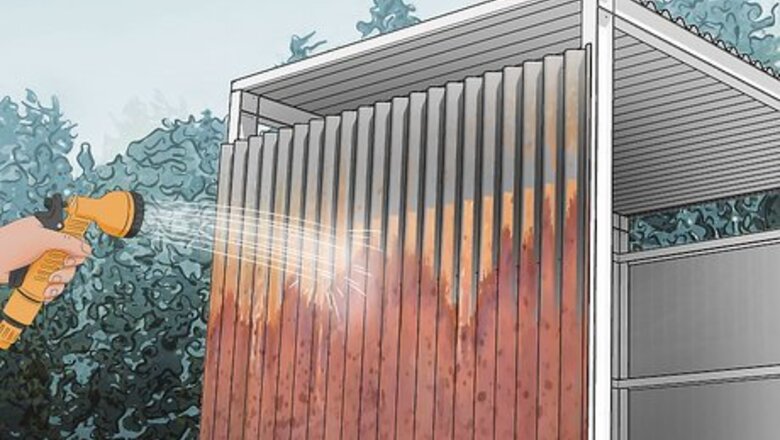
views
Metal Shed Preparation
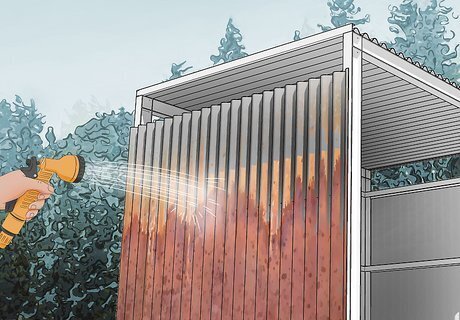
Spray your shed with a hose. Use a strong spray attachment to remove leaves, dirt and other debris. It is important to clean it to see which areas of the shed have rust.
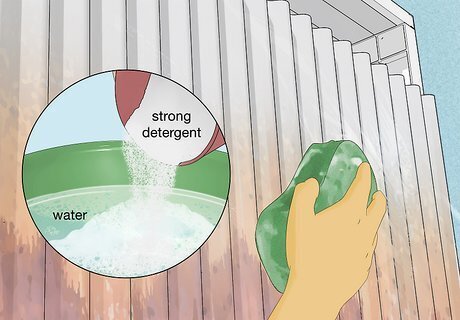
Wash the surface with a mixture of water and strong detergent. Dirt will hold in moisture and increase rust, so take time when washing your shed. Use a sponge with a soft and abrasive side and then rinse well.
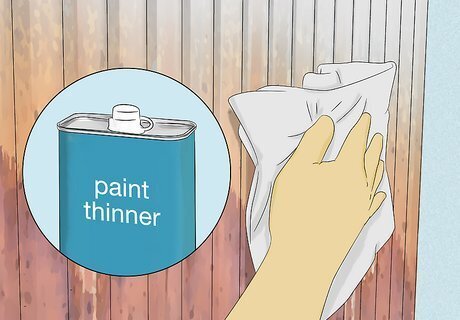
Apply paint thinner on a rag to flash rust. This type of rust appears quickly after the metal surface is wet. It will damage the metal if not treated immediately.
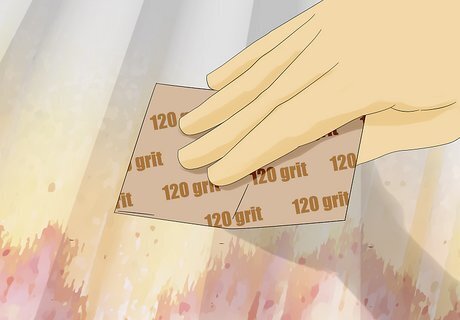
Sand the area around any holes with 80 to 120 grit sandpaper. Wash it and apply some paint thinner with a rag to remove any flash rust spots. Sanding the surface helps improve paint adhesion.
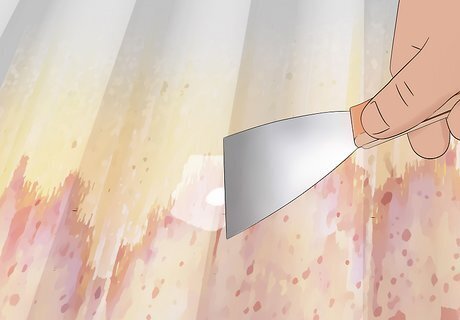
Fill holes with auto body filler. Use a putty knife to apply the auto body filler and swipe it until it is almost even with the shed's metal surface. Allow it to dry completely.
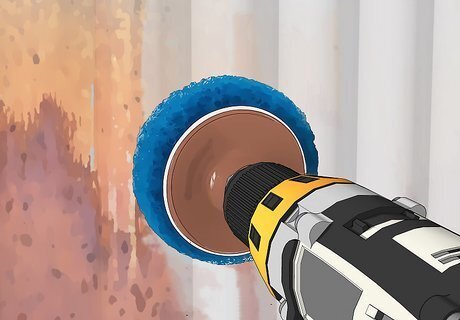
Remove the rust on the shed. There are a number of methods that can be used. Choose depending upon available materials and the quantity of rust. Buy a wire brush attachment for your power drill, if you have rust patches, instead of rust all over the shed. Employ a belt sander and orbital sander to remove rust on many surfaces and corners. Use fine grit sandpaper so that you do not damage the integrity of weakened surfaces. Most people who are repainting metal sheds will need to do some sanding. Although you can sand by hand, it will save time by using power tools. Rent a hand held sandblaster for big jobs. This device uses compressed air to blow fine sand over the surface of the shed. It has the same effect of sanding, but is very efficient. Make sure to lay drop cloths over plants and objects. Sandblasting is extremely effective for metal scroll work and smaller, hard to reach surfaces, as well as long flat surfaces. Use a combination of any of the above methods according to what is the most effective. Remember that areas with auto body filler will also need to be sanded to ensure the paint will stick to the surface.
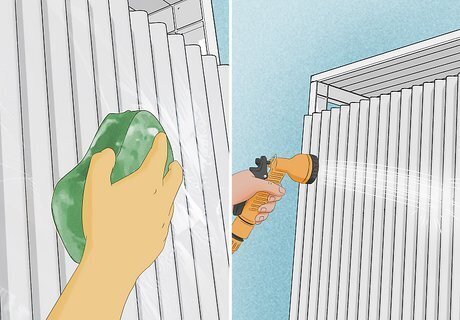
Wash the surface of your shed with detergent and water again. This will remove sand and dirt particles that have accumulated. Allow it to dry completely before starting to paint. If it is a manageable size, dry it with some rags to decrease the likelihood of flash rust.
Metal Shed Painting
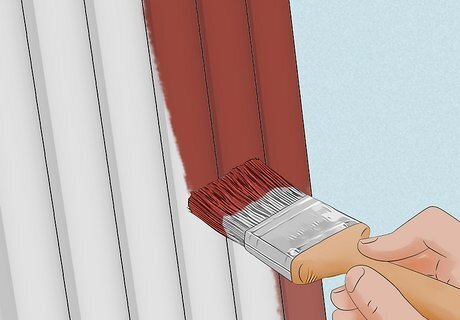
Apply a rust-inhibiting primer with a brush. Make sure you get into all the crevices around the surface of the shed. Read the directions on the rust-inhibiting primer. They usually have a slightly more careful application style than most paints. Spread it according to the spread rate on the container.
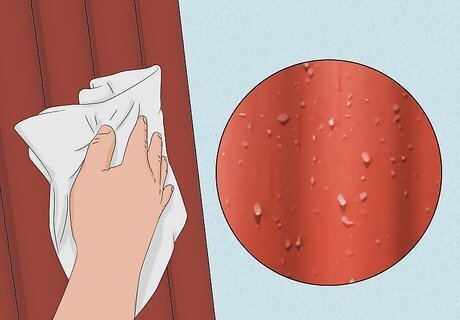
Watch for rusty moisture to appear on the surface of the primer as it dries. Wipe the area dry with a dry cloth. Allow it to dry completely after the moisture is removed.
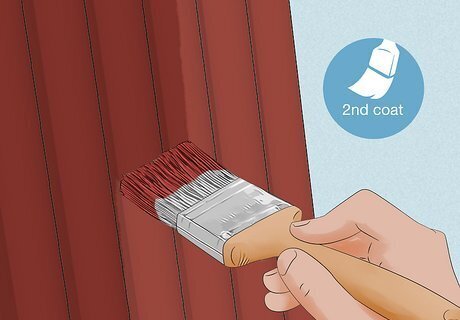
Apply a second coat of rust-inhibiting primer. If your main goal is to avoid rust damage, then do a second coat and look out for rusty moisture as it dries.
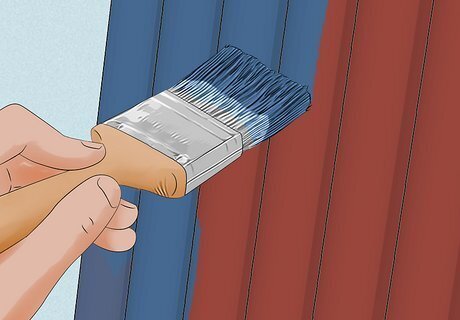
Apply your first coat of water-based enamel acrylic paint. Choose a high-quality paint with rust-inhibiting properties. You can use brushes or a paint sprayer on the paint application.
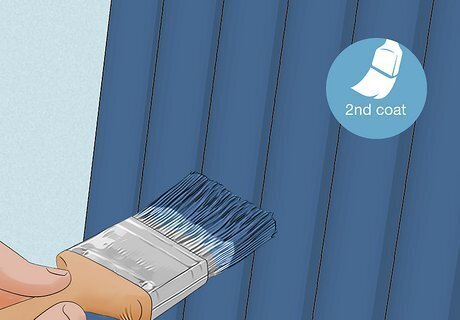
Apply a second coat of paint after the first coat dries, especially if you have chosen a light-colored paint. Many metal primers are red or other darker colors and they can show through.
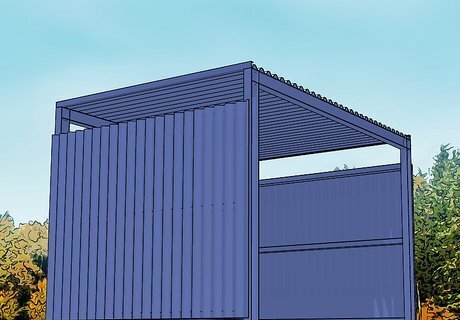
Allow your shed to dry. Remove your drop cloths.

















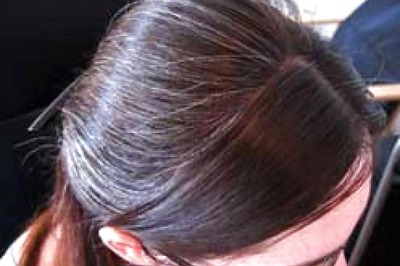

Comments
0 comment